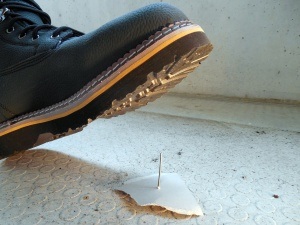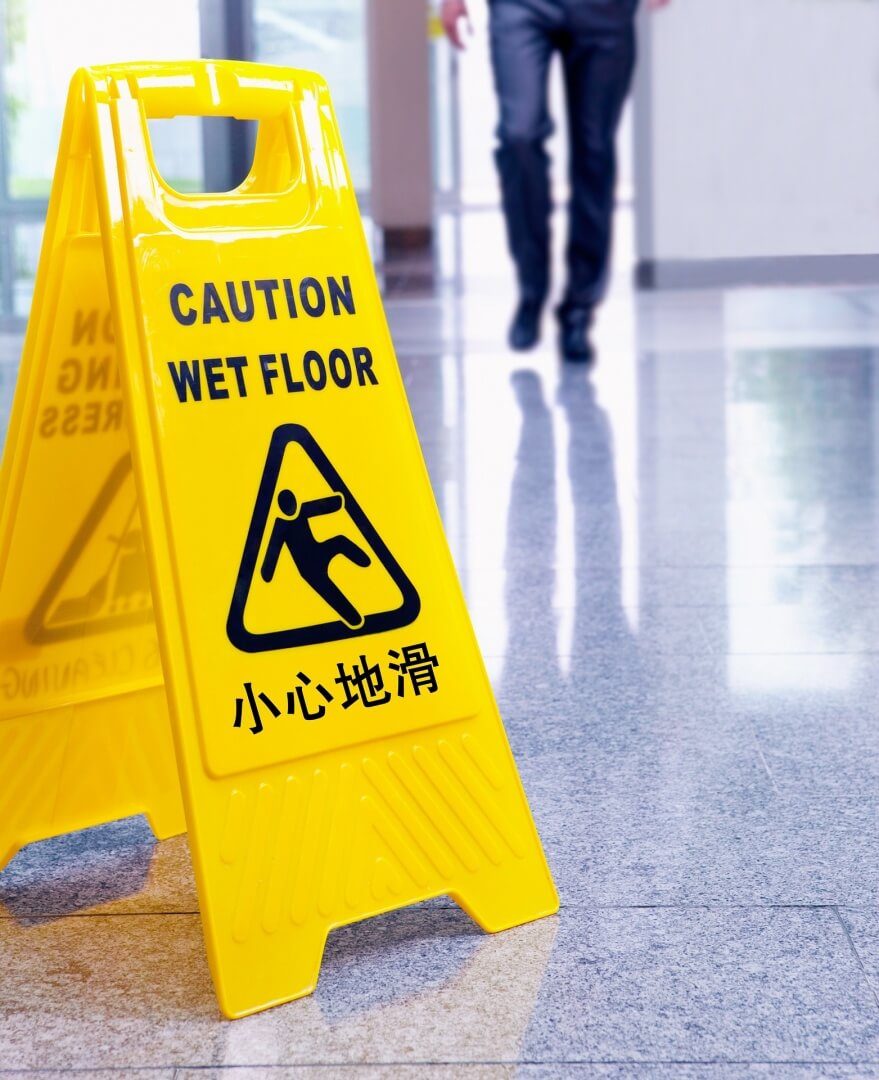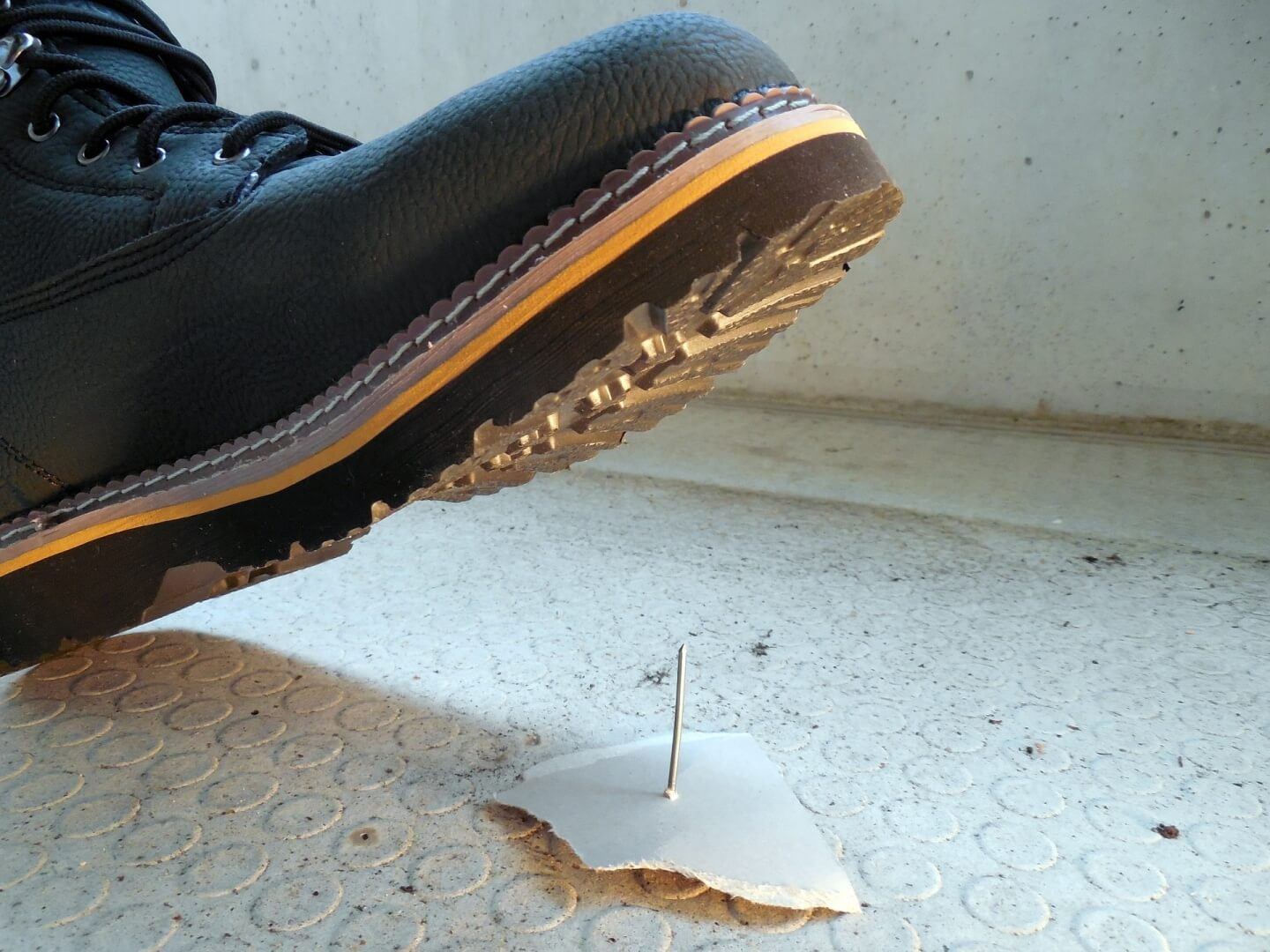Need Immediate help? Call 717-397-1010
After Hours Call / Text 717-471-2168
Need Immediate help? Call 717-397-1010
After Hours Call / Text 717-471-2168
If you have been hurt on the job, you are undoubtedly suffering from not only physical pain, but also emotional pain as you begin to face the harsh reality that you may be out of work for weeks, months or even longer. Each Lancaster workplace accident attorney at our firm understands this and we are prepared to assist you as much as possible with your claim to ensure you get the just compensation you deserve.
In this four-part series, we will discuss a number of mistakes you need to avoid while dealing with your workers’ comp case — errors that could ultimately damage your case beyond repair.
If you’ve sustained an injury while performing your job duties, you may have experienced a level of embarrassment, as well as disorientation. At the time, you may not be thinking clearly even if your physical injuries aren’t immediately evident. Still, there are a number of steps that need to be taken at the time of the accident in order to preserve your claim.
For instance, if your coworkers witnessed the injury, they most likely will be able to advise the employer of what happened just prior to the accident. Their versions will probably vary, as is normal when individuals witness an event from different vantage points. That said, your version of what took place before, during and after the incident will be critical to your case. Accordingly, our Lancaster workplace accident attorney encourages accident victims to write everything down while the incident is still fresh in their mind. Ensure that your notes are as thorough as possible, paying particular attention to what was said by whom and when. No detail is insignificant, so the more complete your notes are, the better.
It is also important to maintain copies of all documents related to the injury, especially from a financial standpoint. Such costs can include travel to and from doctor’s appointments, lost wages and various after-care services. Be sure to obtain and keep copies of all medical records, including MRI and CT scan results, lab reports and other related documents every time you go to an appointment. Doing so from the beginning will help you and your attorney save a ton of time, expense and stress in the long run.
You must let your physician know everything about your injuries that occurred from not only this accident, as well as injuries that existed previously on the same part of the body (which we commonly refer to as pre-existing conditions). So, if your doctor asks how you are doing, do not simply say, “I’m doing okay.” Go into in-depth detail, as the doctor actually needs to know how you are feeling physically. Tell him or her about every symptom you have, including those that have changed or continue to evolve as time passes.
While you are explaining your ailments to the doctor, it is also crucial for you to advise him or her if you’re feeling better than you were initially too. Our Lancaster workplace accident attorney knows that one sure way to damage your workers’ comp claim is to make up injuries that do not exist or to overblow the extent of your injuries. Doctors are professionals who have been trained to spot certain signs and symptoms related to various injuries — so if you’re faking it, they will likely know this sooner rather than later. When doctors think a person is faking injuries, it will be noted in the medical records and that notation may ultimately bring your case to an abrupt end or severely devalue it.
You should be justly compensated for any injuries you sustain while performing your job duties. Don’t mess up your claim by making reckless mistakes that could’ve easily been avoided. Contact our Lancaster workplace accident attorney today to discuss the particulars of your situation.
 It’s that time of year. Office supply stores and Target have dedicated aisle after aisle to binders and crayons and backpacks, and teachers are back in the classroom, putting the final touches on their lesson plans and making sure that their classrooms are color-coordinated and ready. We all think of teachers as underpaid heroes, but few of us are aware that their profession is among the most at-risk of on-the-job injury and illnesses. Not only do a large percentage of our schools represent unhealthy environments that put teachers at risk of toxic exposure, but teachers are facing new challenges that may lead to workers’ compensation claims, including the risk of injury caused by interactions with their students.
It’s that time of year. Office supply stores and Target have dedicated aisle after aisle to binders and crayons and backpacks, and teachers are back in the classroom, putting the final touches on their lesson plans and making sure that their classrooms are color-coordinated and ready. We all think of teachers as underpaid heroes, but few of us are aware that their profession is among the most at-risk of on-the-job injury and illnesses. Not only do a large percentage of our schools represent unhealthy environments that put teachers at risk of toxic exposure, but teachers are facing new challenges that may lead to workers’ compensation claims, including the risk of injury caused by interactions with their students.
The top causes of teacher workers’ compensation claims in the United States include:
Beyond the same types of slips, trips, and strains that are seen in almost every work environment, the other major on-the-job-injury risk that teachers face comes from violence in the classroom or on campus. Roughly 25% of school employee injuries arise from interactions with students, and experts say that teachers are victimized far more frequently than the public realizes — in fact, they have indicated that the problem has reached the level of being a national crisis. A report issued by the Department of Education in 2015 indicated that injuries suffered by teachers led to more than $2 billion in losses included both lost workdays and workers’ compensation benefits.
Teachers are also exposed to a number of toxins in their classrooms, but the most concerning is the risk of exposure to asbestos. Most of America’s school buildings were constructed prior to the 1970s, and that means that asbestos-contaminated products were used in their construction. Asbestos ceiling and floor tiles and asbestos insulation are extremely common, and though they are not a concern when they are intact, as soon as those items begin to break down, there is a risk of microscopic asbestos particles being inhaled or ingested and leading to an increased risk of malignant mesothelioma, asbestosis, and other asbestos-related diseases. Other toxic exposures in schools include mold, mildew, and lead.
There are a number of actions that school districts can take to guard against the most common workplace injuries, including:
If you are a teacher or school employee who has suffered an on-the-job injury, contact us to set up a free consultation to discuss your rights.
 Working in food service can be extremely rewarding and offers a wide range of opportunities. From fast food spots to four-star restaurants and from serving or busing tables to working behind the line as a sous chef or head chef, you can earn a fair income, learn a lot, and spend time with interesting people. Unfortunately, these jobs come with risks and food service injuries are common.
Working in food service can be extremely rewarding and offers a wide range of opportunities. From fast food spots to four-star restaurants and from serving or busing tables to working behind the line as a sous chef or head chef, you can earn a fair income, learn a lot, and spend time with interesting people. Unfortunately, these jobs come with risks and food service injuries are common.
Those who work in customer-facing roles can hurt themselves reaching across tables to serve or clear. They can trip on a slippery fall, or even find themselves face-to-face with robbers. Those who work in the kitchen are subject to the risk of burns and other injuries from stoves and ovens, knives, and electrical appliances, as well as exposure to hazardous chemicals. Even the employees that work at drive-thru windows or who deliver food can end up injured on the job.
No matter what your position or how you were hurt, if you were injured while working in a food service establishment you may be entitled to workers’ compensation.
Workers’ compensation is a no-fault insurance policy that covers nearly every worker in America. It represents an agreement between employer and employee that means that injured workers will not need to file a personal injury lawsuit against their employer, and in exchange, their employer will insure them and provide compensation for medical expenses, as well as for any time needed away from work to recuperate and recover.
For those who work in foodservice, some injuries are more common than others. According to Cintas Corporation, one in every 20 on-the-job injuries occur at eating and drinking establishments, and the top four restaurant injuries are:
When you’ve been hurt on the job, you need to know your workers’ compensation rights to make sure that you receive the benefits to which you are entitled. Contact our office today to learn more.
Despite the laws protecting workers following an injury on the job, there are dishonest employers that have forced the resignation of their employees. Forced resignation is treated the same as termination and leaves already injured employees with a wrongful termination claim on their hands.
Employers try to force out injured workers for a few reasons. One of the biggest reasons is to avoid having to provide the correct accommodations, while others may be trying to avoid a Workers’ Compensation claim. Oftentimes, they try to make the worker decide to leave on their own with hostile work environments, but some even ask the employee to resign outright.
Constructive discharge is a legal concept created by the National Relations Board in the 1930s to stop employers from discouraging employees from joining labor unions by making them resign from their positions. Today, the same efforts are used to force injured employees to resign, even if they are not part of a union.
This is done by creating intolerable working conditions or a hostile work environment, or by telling the employee they must resign.
 Intolerable working conditions go beyond an unsupportive manager or being unhappy at work. Instead, someone claiming such working conditions must prove they were forced to leave by these conditions, and that they came because of their injury. To achieve this, it must be proven that the conditions were objectively intolerable, as opposed to working conditions the employee didn’t like.
Intolerable working conditions go beyond an unsupportive manager or being unhappy at work. Instead, someone claiming such working conditions must prove they were forced to leave by these conditions, and that they came because of their injury. To achieve this, it must be proven that the conditions were objectively intolerable, as opposed to working conditions the employee didn’t like.
In this case, objectively intolerable simply means the average worker in the same job and field would have found the conditions bad enough to feel they had to quit. This is the most difficult part of a legal case when it comes to forced resignations. Some actions an employee can prove include harassment, demotions, or humiliation, along with severely cut hours.
Typically, there must be tangible action to build a case. There also needs to be proof that there was efficient time and opportunity for the working conditions to be fixed before resignation. It is important for employees who feel they are under poor working conditions to keep track of the conditions, such as having copies of reports or making notes during meetings regarding the conditions.
If you feel you were forced to resign, or feel you can’t continue working under the present conditions, contact our Pennsylvania Workers Compensation lawyers at Vanasse Law today. We will work to protect your rights and hold your employer accountable for their actions.

People tend to romanticize the idea of working with animals. We hold veterinarians and animal shelter workers in high regard and visualize pastoral images of lambs, calves, and chickens when we think of farm work. The reality of the situation is far different. A report conducted by the Bureau of Labor Statistics found that in the five-year period between 1992 and 1997, animals were either partially or entirely responsible for 375 fatal on-the-job injuries, accounting for one percent of all of the fatalities during that period. During the same period of time, there were 75,000 animal-related injuries that were not fatal. These types of injuries result in significant harm, with employees having to seek medical attention and take time from work in order to recuperate. If a worker is injured on the job and their employer is required to carry workers’ compensation insurance, then those injuries would be eligible for workers’ compensation benefits. If the injury was the result of negligence on the part of a third party, then the employee may be able to file a personal injury lawsuit against those responsible. The Lancaster law firm of Vanasse Law has extensive experience in helping injured workers get the justice they deserve. We can help you get the compensation you deserve.
When livestock is present as part of the work environment, their actions are generally included in the owner’s legal responsibilities. Though farm animals such as sheep, goats, pigs, horses, and cows may be considered domesticated, they are still capable of causing serious injuries to those who are around them, including those who are working with them. Injuries and accidents can include:
Those who own the animals are responsible for taking actions to protect their employees from their animals. These actions may include providing proper training, providing appropriate fencing and equipment to provide a barrier between employees and the animals, establishing safety protocols for what to do when animals escape or get out of control, and making sure that first aid supplies are available to provide immediate care to anybody who has been injured.
Under workers’ compensation rules, an employer cannot be held personally responsible for injuries sustained by their employee for animal attacks on the job, but the owners of the animal can be, and so can third parties who may have contributed, or to whom the animals belonged. Employees do, however, have the right to file for workers’ compensation benefits to provide compensation for medical care and lost wages. For information about how to access these benefits or for representation, contact the Pennsylvania law firm of Vanasse Law.

Having a job and going to work each day are closely tied in to an individual’s sense of self-worth. That’s why people work so hard to get the training and education that they need for their desired occupation and why they strive to do well, accomplishing goals and making their employers happy. When a dedicated employee is hurt on the job and unable to perform their work responsibilities, it does more than impact the company’s productivity – it also can lead to depression and a fear that somebody else will take their place. Slip and fall accidents are among the most common types of employee injuries, and they can lead to long-term disabilities. Good maintenance practices can prevent slip and fall accidents at work, keeping employees happy and healthy. The attorneys at the Lancaster law firm of Vanasse Law are proud to provide employers and employees alike some tips on how to minimize accidents from happening.
Most slip and fall accidents are a result of unstable floors, or flooring where the employee loses traction or trips over something. Examples include:
Employers that want to minimize employee slip and fall accidents at work should pay attention to basic housekeeping, planning ahead for weather-related hazards and assigning responsibility for clean-up. This means that employees may be given the task of cleaning up after the weather, themselves, or others in order to prevent an injury from happening. Responsible employers will implement a program that automatically ensures that walking surfaces are frequently inspected for water, ice, debris or other hazards. The program should include the installation of safety-minded devices such as “wet floor” signs, moisture-absorbent mats with beveled edges, and anti-skid adhesive tape.
Additional steps can include careful inspection of all work areas for hazards such as poor lighting, stairwells that are poorly lit or have uneven stairs or loose or absent handrails. Safety training that teaches employees to close cabinet drawers and to report broken fixtures and other potential risk factors immediately can also reduce the number of slip and fall injuries. Finally, where appropriate, the mandating of appropriate footwear can cut down on slip and fall injuries dramatically.
When an employee is hurt in a slip and fall accident at work, everybody suffers. The worker suffers pain and the emotional trauma of being away from the job that provides them with their sense of self-worth and the employer loses the skills and talent that the employee provides. It is always best to avoid injuries rather than to regret them later. If you have been injured in a slip and fall accident at work, contact the workers’ compensation attorneys at Vanasse Law today.

Most employees are covered by workers’ compensation, a no-fault insurance that provides benefits that cover medical expenses and lost wages in exchange for the injured worker not filing a lawsuit against their employer. Though this benefit was originally designed to make the process easier on both the worker and the employee, over the years it has become a situation that can be fraught with animosity as employers or their insurers deny coverage and argue against the extent of the damages that have been suffered. If you have been injured on the job and you are eligible for workers’ compensation, there are certain steps you need to follow, deadlines you need to meet, and mistakes you need to avoid to strengthen your chances of getting the benefits you deserve. The attorneys at the Lancaster law firm of Vanasse Law are dedicated legal advocates who are committed to making sure you get the benefits that you deserve. Contact us as soon as possible after a workplace injury takes place in order to preserve your rights.
There are a number of mistakes that can lead to an injured worker not getting the benefits that they deserve for their workplace injury. These include:
Though there is no requirement that you use an attorney when you file a workers’ compensation claim, having a qualified and knowledgeable lawyer acting on your behalf is one of the best things you can do to ensure that you get the benefits that you deserve. A lawyer will make sure that you are in compliance with all of the workers’ compensation laws’ requirements, that all of your documents are in order, and that you avoid the mistakes that can jeopardize your ability to get your compensation. The lawyers at Vanasse Law are here and ready to help.

It is sometimes difficult to envision an injury occurring in an office environment. After all, when you picture an office you think of cubicles, office chairs, and copier machines — all things that rarely represent a risk. Still, there are a surprisingly high number of workers’ compensation claims submitted for injuries that occur in these settings. People can slip and fall, they can be victims of office furniture tumbling over or drawers carelessly left open. Chairs can break, individuals can hurt themselves trying to lift heavy objects, and sitting at a desk and typing on a computer for hours at a time can lead to repetitive stress injury. If you have suffered an injury or illness that occurred at the office, then you are entitled to workers’ compensation, a benefit provided specifically for those who have been hurt at work. Workers’ compensation is supposed to be a no-fault process that allows the injured employee to receive compensation without assigning blame. Unfortunately, it can still be a difficult process, as employers and their insurance companies often deny claims. If you have been injured on the job and need assistance getting the benefits you deserve, Vanasse Law can help.
There are several common injuries that occur at the office. Some are a result of the nature of office work, as employees that spend most of their time inside and seated can often suffer from back and neck pains, pain in the hands and wrists, and even vision strain from staring at a computer for hours on end. Others are simply the same injuries that can happen in any setting. Here are the office injuries that we most frequently see and represent:
No matter what the cause of your injury, if you have been hurt or sickened at the office then you may be entitled to compensation for your medical expenses, as well as any time that you need to take away from the office for recovery. If you need assistance in preparing a claim, gathering documentation or appealing a denial, call the attorneys at Vanasse Law today. We know how to fight for your rights.
When you think of on-the-job injuries, most people don’t think of being hurt in a car accident. But the truth is that motor vehicle crashes are one of the most common causes of deaths and injuries in the workforce. Employees who have been injured in car accidents while on the job have a legal right to workers’ compensation benefits, but these claims are often denied by employers or their insurance companies. It is important that you understand your rights and that you have experienced, dedicated legal representation. The Lancaster workers’ compensation attorneys from Vanasse Law, LLC are here to help.
One of the most essential questions that come up when an employee files a claim for workers’ compensation benefits following a car accident is whether they were actually “on the job” at the time that the accident occurs. Though accidents that occur while on your daily commute generally do not fall into this category, there are a number of circumstances that do, including:
These are clear-cut examples of on-the-job driving. Others include employees who do not have a fixed office and are required to drive for work or employees who are being paid by their employer for travel time. Even an accident that occurs on the way to or from the job may be viewed as a work-related accident if an employee has been asked to do something for their employer while on the way. In all of these cases, an accident is likely to qualify as having happened on the job and entitled the worker to workers’ compensation benefits.
Motor vehicle accidents that occur while on the job often result in both workers’ compensation claims and personal injury claims. As an employee who is covered by workers’ compensation insurance, you have the right to file a claim for your medical expenses, as well as compensation for wages that you lose as a result of your injuries. Workers’ compensation may provide you with either temporary or permanent disability compensation depending upon the extent of your injury, and may also provide rehabilitation expenses. You may also be able to file a personal injury claim for damages that you have suffered against any party that was involved in your accident and who displayed negligence.
At the Lancaster County law firm of Vanasse Law, LLC, we understand that your employer has a responsibility to you whenever you are driving on their behalf, or injured in a motor vehicle accident while on the job. We can help determine what benefits you are entitled to and represent you in a workers’ compensation claim, as well as investigating whether or not negligence played a role in your accident and pursuing justice on that front. Contact our office today to learn more about how we can help.
Pennsylvania is one of America’s most prominent farming states. The state boasts over 63,000 farms and ranks fourth in the country for dairy production, apple production, and grape production, and first for mushrooms. Though farming may evoke an image of a bucolic and peaceful setting, the truth is that it is a very dangerous profession, and agricultural employees are at high risk for work-related injuries. Despite the dangers inherent in the industry, workers’ compensation laws throughout the country do not necessarily apply to those who work on farms, and for those who suffer farm work injuries in Pennsylvania, those protections might be in place, but only under limited circumstances. Understanding worker’s compensation for Lancaster, PA farm workers is complex, but the attorneys at Vanasse Law are dedicated to ensuring that those who are injured on the job get the justice they deserve. If you’ve suffered a farm work injury, call us today and let us tell you how we can help.
Though Pennsylvania does allow farmworkers to collect workers’ compensation when they have suffered a farm work injury, that is only provided on a limited basis. According to the law, Pennsylvania farm employers are only required to provide workers’ compensation if they pay one agricultural worker wages of $1,200 or more, or furnish employment to one employee in agricultural labor for thirty or more days in a calendar year. Additionally, the state courts have ruled against the rights of undocumented workers to receive replacement wages when they have suffered a farm work injury, though they do provide for medical benefits. Trying to understand whether your employer is required to provide these benefits can be a complex process, and that is why you need the help of an experienced Lancaster, PA workers’ compensation law firm.
Farmworkers are at risk for a number of injuries. Accidents can occur when working with heavy machinery or you may be injured while working with power tools. Farm animals can be unpredictable and can expose you to airborne illnesses, chemicals and pesticides can lead to a variety of conditions and toxicities, and you can develop repetitive stress injuries or suffer injuries such as broken bones or back strains. In all of these cases, the medical bills will quickly become overwhelming and you may be required to miss work or be completely disabled.
Though the exclusions and limitations established by the state with regards to providing workers’ compensation to farmworkers may seem to work against your ability to get the compensation you need following your work injury, the lack of workers’ compensation does not preclude your ability to file a third-party personal injury claim that can provide you with similar benefits or compensation. The attorneys at the workers’ compensation law firm of Vanasse Law have extensive experience in determining the best way to approach each farm work injury situation in order to maximize your ability to get the compensation that you need. Call us today to see how we can help.
Learn more about Workers’ Compensation and Vanasse Law HERE.